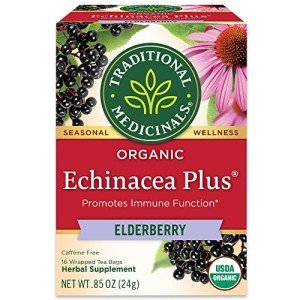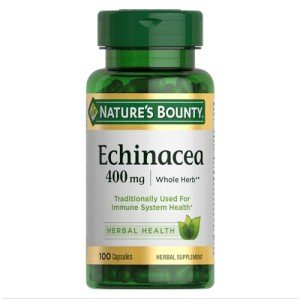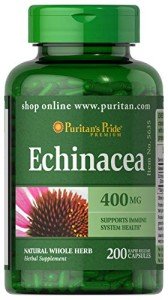Introduction
From ancient herbal traditions to modern wellness routines, ginseng has carved out a powerful reputation for promoting physical strength, mental clarity, and overall health. But what exactly is ginseng used for? Whether you’re sipping it in tea or taking a daily capsule, understanding ginseng’s core purposes—and its limits—is key to safe and effective use.
In this article, we’ll cover the primary uses of ginseng, who benefits most, and who should avoid it due to potential interactions or side effects. We'll also guide you on how to choose the right form—be it tea, tablets, or raw root.
What Is Ginseng and Why Is It Popular?
Ginseng refers to the root of several plant species, most notably Panax ginseng (Asian/Korean) and Panax quinquefolius (American). Rich in compounds called ginsenosides, this adaptogenic herb is believed to enhance the body’s resistance to stress, restore balance, and promote wellness.
Common forms include:
- Ginseng root (fresh or dried)
- Ginseng tea
- Ginseng tablets or capsules
- Ginseng extracts and supplements
🟩 Learn more: Ginseng Benefits: What It Does to Your Body, Energy, and Sexual Health
🟩 Compare formats: Ginseng Tablets vs. Raw Root: Which Delivers Better Health Results?
✅ Top 7 Health Benefits and Uses of Ginseng
1. Boosting Energy and Reducing Fatigue
Ginseng acts as a natural energy enhancer. Unlike caffeine, it supports energy at the cellular level, helping fight fatigue without causing jitters or crashes.
- Popular among people with chronic fatigue, athletes, and those recovering from illness
- Ideal for mid-day slumps or long workdays
🟩 Also read: How Ginseng Boosts Energy Naturally
2. Improving Mental Focus and Memory
Ginseng has been shown to improve cognitive function, especially memory, reaction time, and mood. It helps regulate neurotransmitters like dopamine and serotonin.
- Beneficial for students, professionals, and seniors
- Often paired with Ginkgo biloba for a cognitive boost
3. Strengthening the Immune System
Studies show ginseng can stimulate immune responses, enhance antibody production, and reduce the severity and duration of colds and infections.
- Especially effective with American ginseng
- Great during seasonal changes or periods of high stress
4. Enhancing Sexual Health and Libido
Panax ginseng is a traditional aphrodisiac, used to improve libido, sexual performance, and even erectile function in men. It may support hormonal balance in women.
- Mechanism: increased nitric oxide for better blood flow
- Often found in men’s vitality supplements
🟩 Related: Ginseng for Sexual Health: Exploring Its Benefits for Libido and Vitality
5. Supporting Blood Sugar Control
Ginseng may help regulate blood glucose levels, making it beneficial for people with insulin resistance or type 2 diabetes.
- Should be used with caution and medical supervision
- More research is ongoing
6. Reducing Stress and Improving Mood
As an adaptogen, ginseng supports the adrenal glands and helps balance the body’s stress response. It may also reduce symptoms of anxiety and mild depression.
- Best used with lifestyle changes like improved sleep and nutrition
7. Fighting Inflammation and Oxidative Stress
Ginsenosides exhibit anti-inflammatory and antioxidant activity, helping reduce inflammation linked to chronic diseases such as arthritis and cardiovascular issues.
🟩 See more: Ginseng: Benefits and Side Effects
⚠️ Who Should Avoid Ginseng?
While ginseng is generally safe for short-term use in healthy adults, it’s not suitable for everyone. Here’s who should consult a healthcare provider before using ginseng:
🚫 People Who Should Avoid Ginseng:
- Those with high blood pressure or heart disease
- People on blood thinners (e.g., warfarin)
- Individuals taking antidepressants or insulin
- Pregnant and breastfeeding women
- Children and teenagers (unless supervised)
🟩 More info: Who Should Not Take Ginseng? Important Warnings Before You Use It
🟩 Safety overview: Is Ginseng Safe for Everyone?
⚖️ Potential Side Effects to Watch For
Most side effects occur with high doses or long-term use. Common side effects include:
- Insomnia
- Headaches
- Digestive upset
- Increased heart rate
- Nervousness or anxiety
To avoid complications, it’s recommended to use ginseng for no more than 2–3 months at a time, followed by a break.
🟩 Explore: Ginseng Supplements Demystified: Forms, Functions, and When to Take Them
💊 Choosing the Right Ginseng for Your Needs
|
Form |
Best For |
Notes |
|
Ginseng Tea |
Relaxation, daily health |
Mild potency, soothing |
|
Ginseng Tablets |
Daily energy, sexual vitality |
Convenient and travel-friendly |
|
Ginseng Root |
Traditional preparation |
Requires boiling or steeping |
|
Supplements |
Targeted support (high potency) |
Often combined with other herbs |
🟩 Compare: Ginseng Tea vs. Ginseng Tablets
🟩 See: Where to Buy Ginseng and Spot Quality at the Right Price
🙋♂️ Frequently Asked Questions
1. What is ginseng mainly used for?
Primarily for energy, mental clarity, immune support, and sexual vitality.
2. How quickly does ginseng work?
Some effects (like energy and alertness) may be felt within days; others take a few weeks of consistent use.
3. Can I take ginseng every day?
Yes, but take breaks every few months to avoid tolerance or side effects.
4. What is the best time to take ginseng?
Morning or early afternoon. Avoid taking it close to bedtime.
5. Is ginseng safe with other supplements?
Usually, yes—but always check with a healthcare provider, especially if combining with stimulants or medications.
🟩 Browse more answers: Top 6 Frequently Asked Questions About Ginseng
🧠 Conclusion
Ginseng is a versatile herb used across the globe to boost energy, support immunity, enhance mental clarity, and improve sexual function. While it's generally safe for most, knowing how to use it—and when to avoid it—can make all the difference in your health journey.
Whether you’re drinking it as tea or taking it as a tablet, ginseng may just be the natural edge your wellness routine needs.
🟩 Ready to dive deeper? Read our full guide: Ginseng Benefits: What It Does to Your Body, Energy, and Sexual Health




